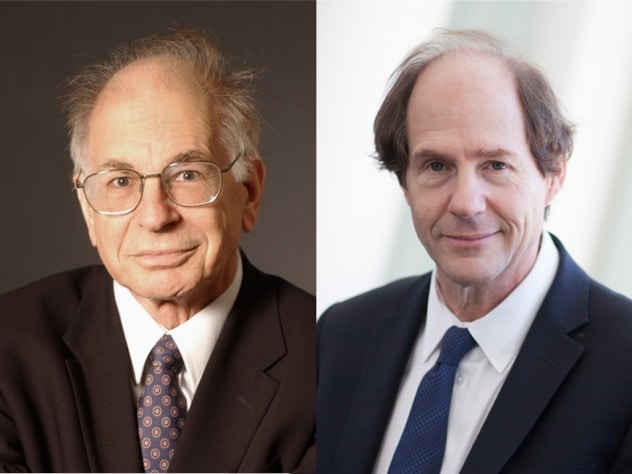“When you try to answer a question,” said Kahneman, “you sometimes answer a different question.” In a seminal 1979 paper, he and Tversky described a series of experiments that questioned the classical economic assumption of “homo economicus,” a rational actor motivated by self-interest. In its place, they defined what they termed prospect theory, a description of the mental shortcuts, or heuristics, that guide people’s everyday decisions, as well as the systematic biases that could result from them. “A heuristic,” Kahneman explained, “is just answering a difficult question by answering an easy one.” When asked, for instance, the number of divorces at one’s university, one might substitute the question of how easy it is to think of examples of divorces, a heuristic Kahneman and Tversky dubbed “availability.” “Evaluation happens in a fraction of a second,” Kahneman said. Reflecting on this theory’s place in the history of psychology, he noted, “In the last 20 years, [psychologists] have rediscovered the unconscious…but it didn’t come from Freud. It came from experimental psychology.”
Cover image as published by Harvard Business Review.
—————
Master the method and tools to change behaviour in our two-day masterclasses at the Behavioural Design Academy.
Create, prototype and test your marketing challenges in 5 days with SUE’s Behavioural Design Sprints.
—————
Want free training, tools, and tips in your inbox?
Join 2500+ others. Sign up right here, right now for free.
Error: Contact form not found.
